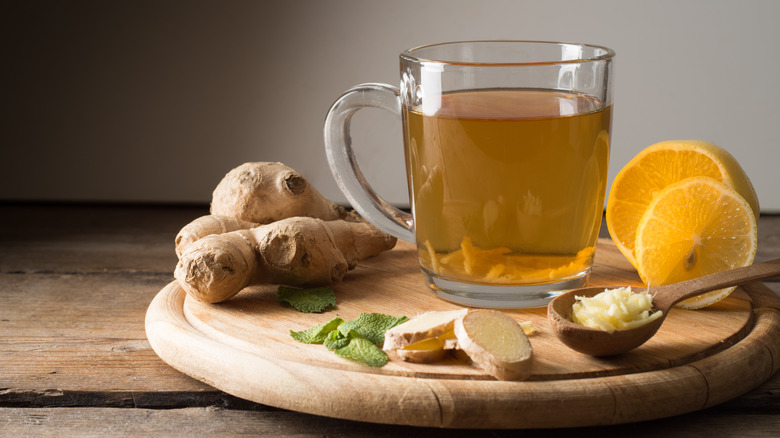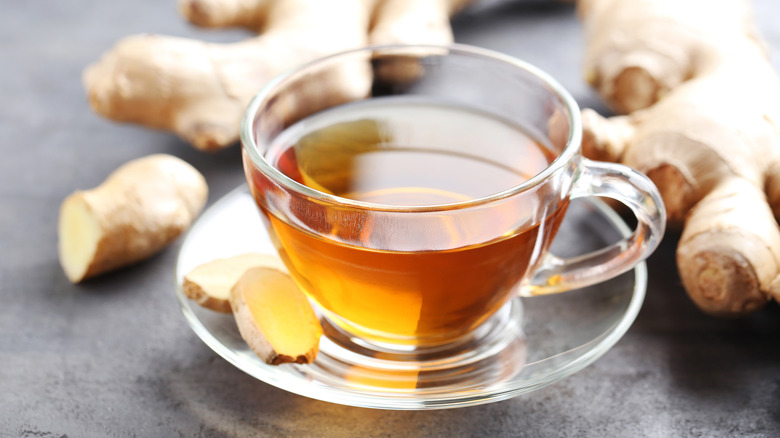The Minimum Steep Time For Tea Made With Fresh Ginger
If you know your way around a kitchen's spice drawer, then you know how important ginger can be. Sold fresh, ground, powdered, dried, and even candied, the ingredient comes in all shapes and sizes. Powerful in flavor, the ginger plant has been used for culinary and medicinal purposes for thousands of years. According to Herbal Medicine, though the main part we eat is commonly referred to as ginger root, it's technically a rhizome — a stem from which the roots grow.
While ginger's true origins are still unknown, it has had a name since ancient times — such as "srngaveram," which means "horn root" in Sanskrit. It is believed that people in China and India were the ones to first cultivate ginger as a treatment for illnesses over 5,000 years ago, but its use as a culinary ingredient predates any formal historical record.
One of the most popular ways ginger has been used throughout millennia is in tea, which itself has existed since ancient times and has become a huge aspect of many cultures throughout the world. Ginger tea in particular is widely enjoyed and can be drunk morning, noon, and night. This type of tea doesn't contain alcohol, caffeine, or practically any calories — and it can soothe your upset stomach or nausea (via Cookie and Kate). It's considered to be a healthier alternative to ginger ale, which usually has an excessive amount of sugars and additives while containing little actual ginger.
The longer, the stronger
Though the dried variety you get at the store shares many of the same health benefits of fresh ginger tea, the latter usually has stronger flavor, per Johns Hopkins Medicine. And it's relatively simple to make: Trim and peel it, then cut it into thin slices. Luckily, ginger in its raw form is so intense that it doesn't take a lot to make a good cup of tea. For a quick and easy cuppa, just slip a few slices into a mug and pour boiling water on top.
If you want to unlock the full flavor of ginger, however, you should simmer it instead of just placing it in hot water. Boiling the ingredient brings out more of its taste and essence, according to Organic Authority, which recommends boiling ginger slices and water in a saucepan and then simmering the brew until it has a dark color. In fact, your tea will become spicier and more flavorful the longer the mixture boils (via The Kitchn). A rule of thumb for a deliciously robust cup is at least 10 minutes, but you can simmer it for even longer if you like an extra-strong brew.
If you're making a big batch of tea, use a ratio of one cup of sliced ginger to every eight cups of water, and let it simmer and reduce for about 25 minutes, per Food Network. You can also add honey as a finishing touch to balance out the ginger's intense spice.

